RAK12052 WisBlock Thermal IR Array Module Quick Start Guide
Prerequisite
What Do You Need?
Before going through each and every step of using the RAK12052 WisBlock Thermal IR Array Module, make sure to prepare the necessary items listed below:
Hardware
- RAK12052 WisBlock Thermal IR Array Module
- Your choice of WisBlock Base with IO slot
- Your choice of WisBlock Core
- USB Cable
- Li-Ion/LiPo battery (optional)
- Solar charger (optional)
Software
- Download and install ArduinoIDE.
- To add the RAKwireless Core boards on your Arduino board, install the RAKwireless Arduino BSP. Follow the steps in the GitHub repo.
Product Configuration
Hardware Setup
RAK12052 is a 32 x 24 thermal IR array module based on MLX90640 from Melexis. MLX90640 is a fully-calibrated 32 x 24 pixels thermal IR array in an industry-standard 4-lead TO39 package with a digital interface. The MLX90640 contains 768 FIR pixels.
For more information about RAK12052, refer to the Datasheet.
RAK12052 module can be connected to the IO slot of the WisBlock Base to communicate with the WisBlock Core. Always secure the connection of the WisBlock module by using compatible screws.
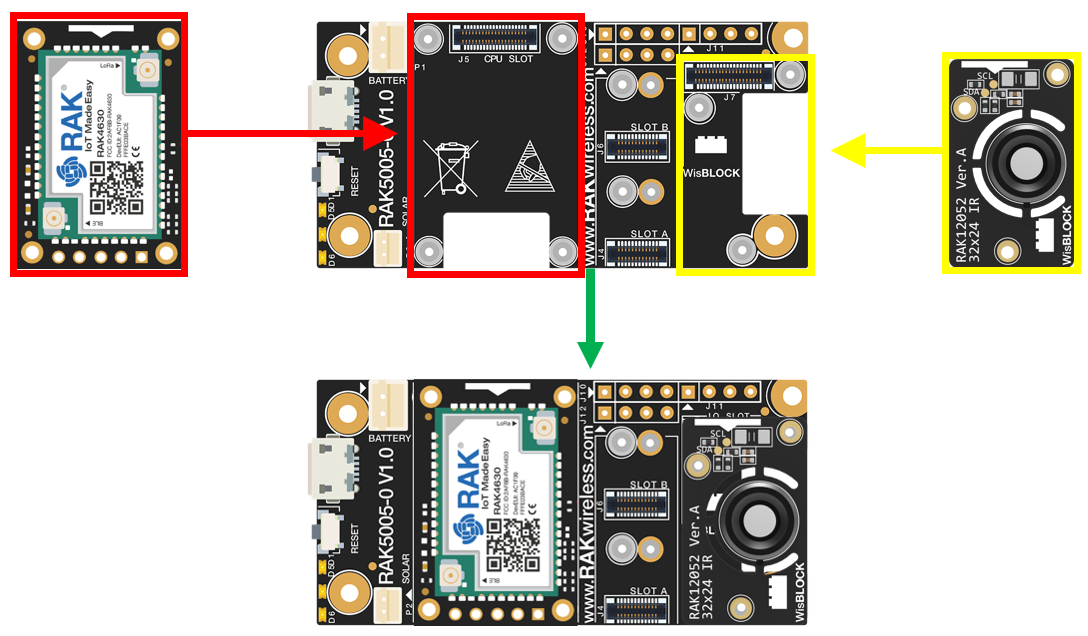 Figure 1: RAK12052 connection to WisBlock Base
Figure 1: RAK12052 connection to WisBlock BaseAssembling and Disassembling of WisBlock Modules
Assembling
As shown in Figure 2, the location for the IO slot is properly marked by silkscreen. Follow carefully the procedure defined in WisBlock Base board assembly/disassembly instructions to attach a WisBlock module. Once attached, carefully fix the module with one or more pieces of M1.2 x 3 mm screws depending on the module.
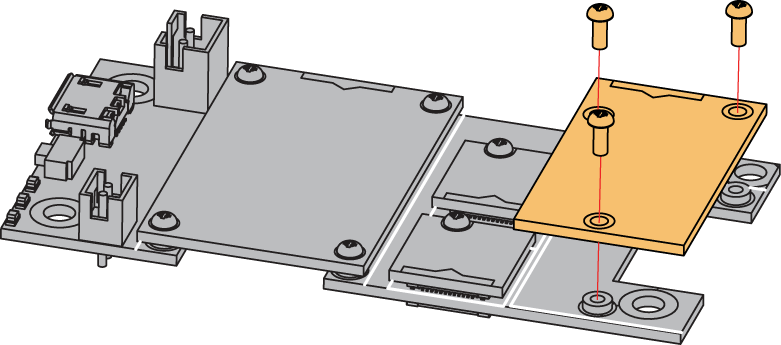 Figure 1: RAK12052 connection to WisBlock Base
Figure 1: RAK12052 connection to WisBlock BaseWhen using the RAK4631 board, connect the LoRa and BLE antennas to avoid damage to the board.
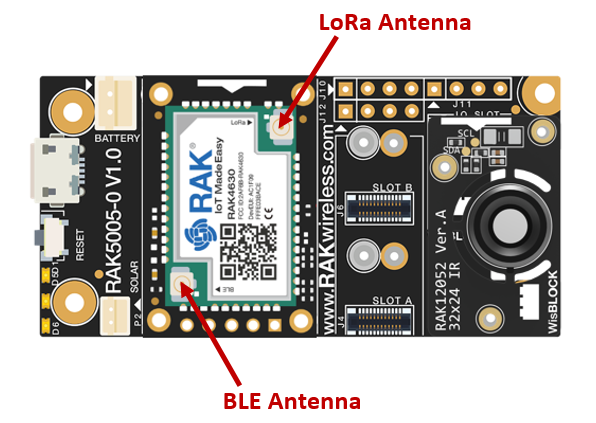 Figure 1: LoRa and BLE antennas of RAK4631
Figure 1: LoRa and BLE antennas of RAK4631Disassembling
The procedure in disassembling any type of WisBlock module is the same.
- First, remove the screws.
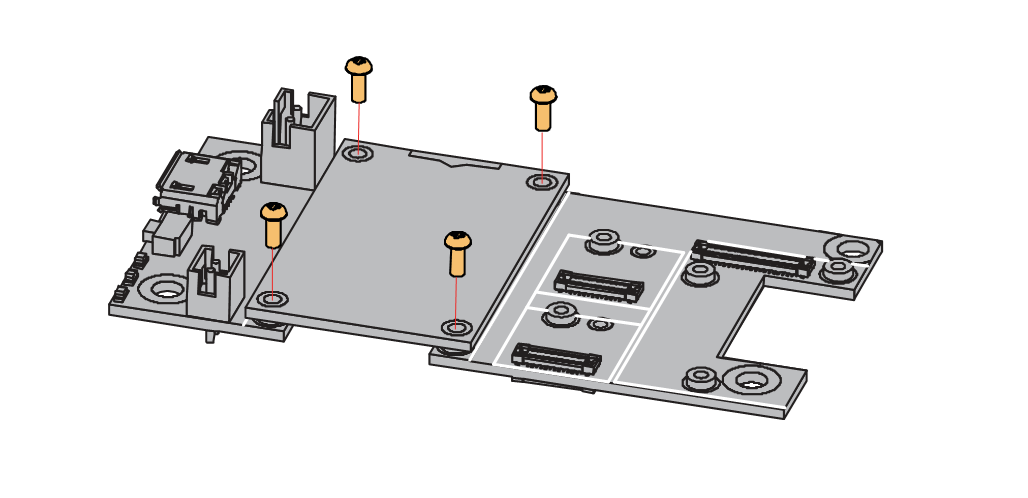 Figure 1: Removing screws from the WisBlock module
Figure 1: Removing screws from the WisBlock module- Once the screws are removed, check the silkscreen of the module to find the correct location where force can be applied.
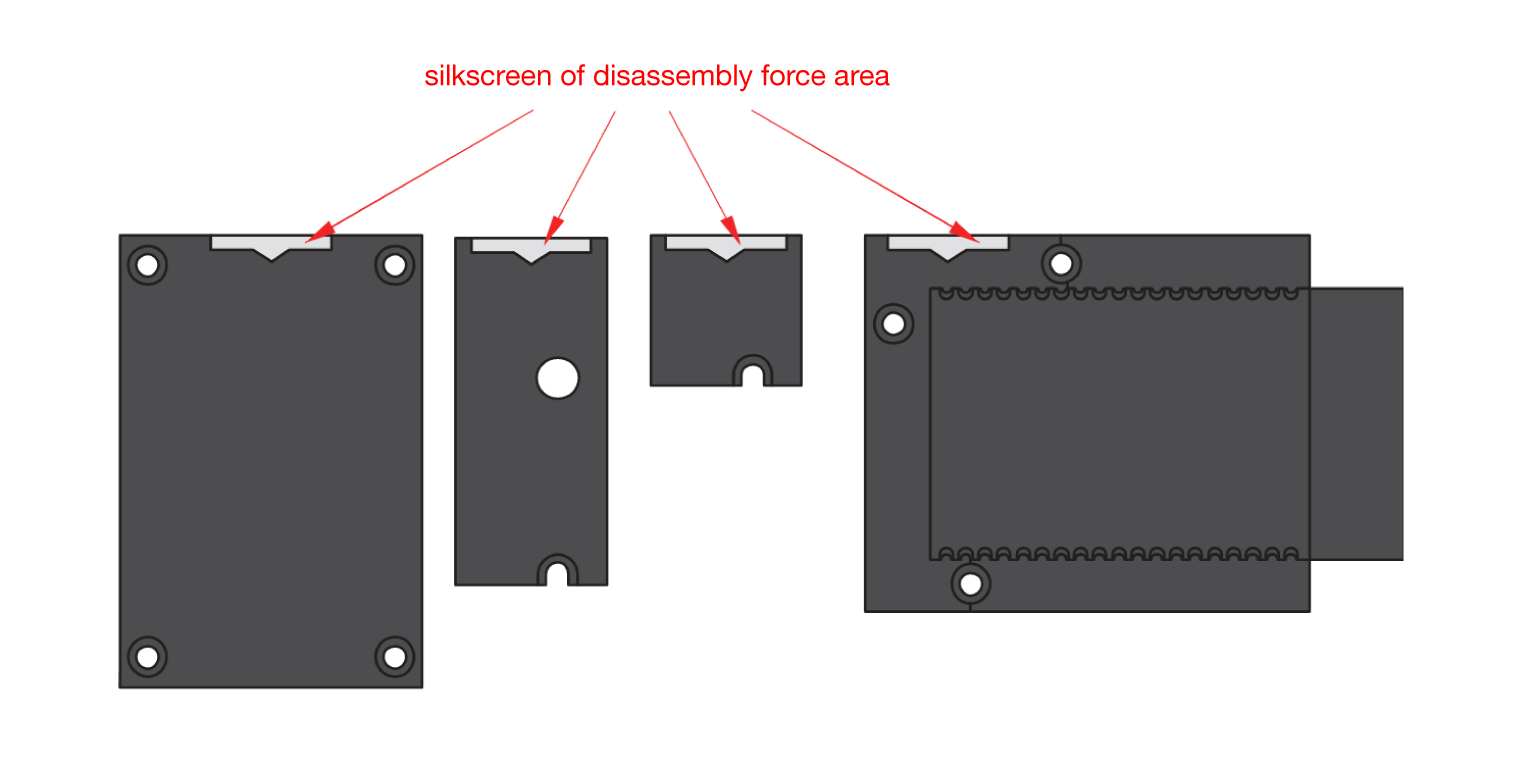 Figure 1: Detaching silkscreen on the WisBlock module
Figure 1: Detaching silkscreen on the WisBlock module- Apply force to the module at the position of the connector, as shown in Figure 6, to detach the module from the baseboard.
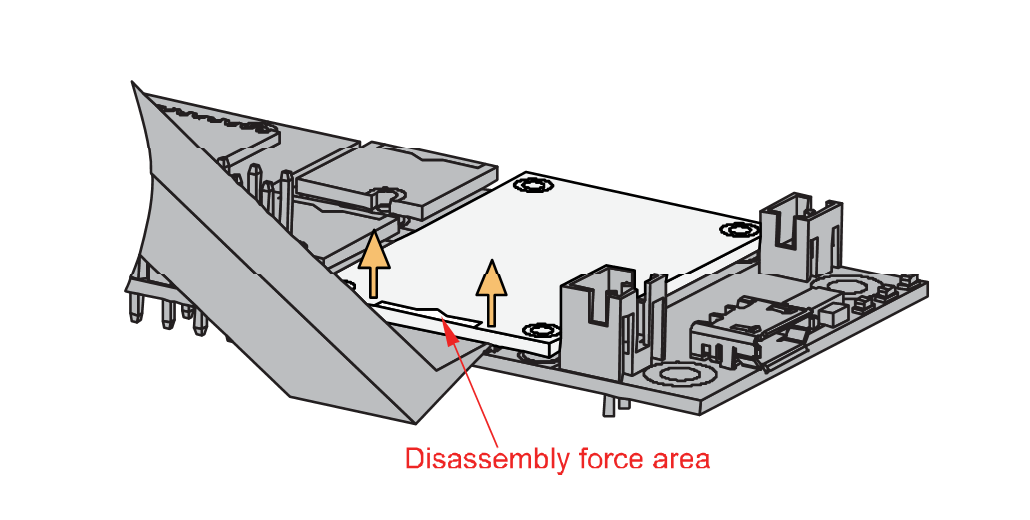 Figure 1: Applying even forces on the proper location of a WisBlock module
Figure 1: Applying even forces on the proper location of a WisBlock moduleIf you will connect other modules to the remaining WisBlock Base slots, check on the WisBlock Pin Mapper tool for possible conflicts. RAK12052 uses I2C communication lines, and it can cause possible conflicts, especially on other WisBlock Modules connected to Slot A to F of the WisBlock Base.
After all this setup, you can now connect the battery (optional) and USB cable to start programming your WisBlock Core.
- Batteries can cause harm if not handled properly.
- Only 3.7-4.2 V Rechargeable LiPo batteries are supported. It is highly recommended not to use other types of batteries with the system unless you know what you are doing.
- If a non-rechargeable battery is used, it has to be unplugged first before connecting the USB cable to the USB port of the board to configure the device. Not doing so might damage the battery or cause a fire.
- Only 5 V solar panels are supported. Do not use 12 V solar panels. It will destroy the charging unit and eventually other electronic parts.
- Make sure the battery wires match the polarity on the WisBlock Base board. Not all batteries have the same wiring.
Software Configuration and Example
The RAK12052 design is based on MLX90640 from Melexis. MLX90640 is a fully-calibrated 32 x 24 pixels thermal IR array in an industry-standard 4-lead TO39 package with a digital interface. The MLX90640 contains 768 FIR pixels. An ambient sensor is integrated to measure the ambient temperature of the chip and a supply sensor to measure the VDD. The outputs of all sensors (IR, Ta, and VDD) are stored in internal RAM and accessible through I2C. It is comparable to having a thermal camera (or Predator's vision) but in compact but usable low resolution. For this example, you will be using the RAK4631 as your WisBlock Core.
Initial Test of the RAK12052 WisBlock Module
- Install the RAKwireless Arduino BSP for WisBlock by using the
package_rakwireless_index.jsonboard installation package. The WisBlock Core should now be available on the Arduino IDE.
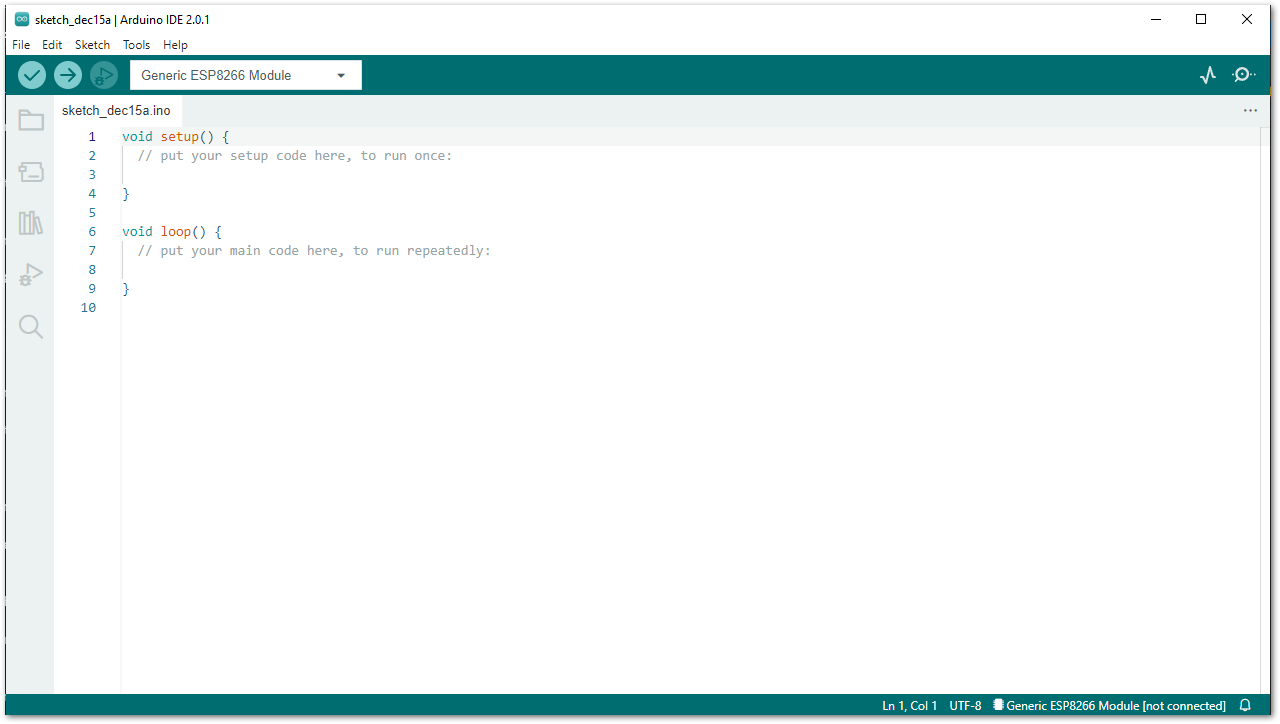 Figure 1: Arduino IDE
Figure 1: Arduino IDE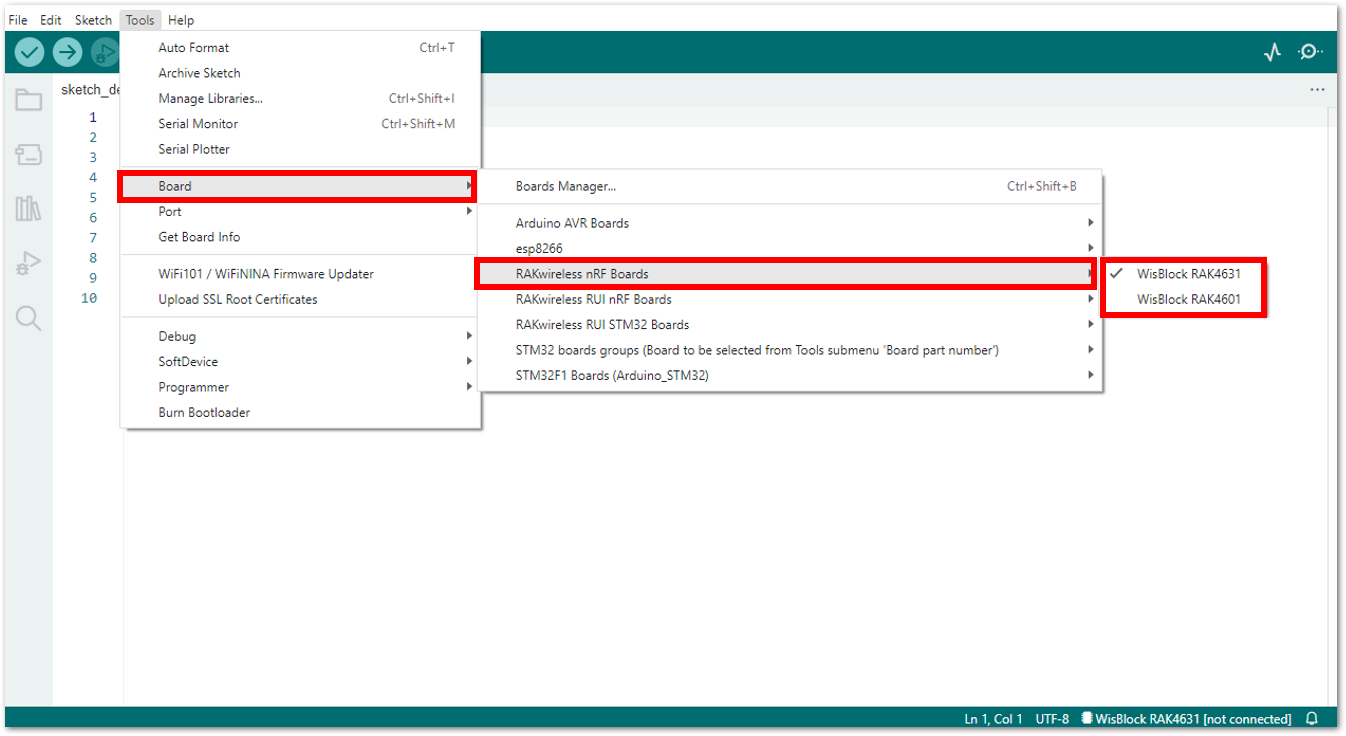 Figure 1: WisBlock Cores inside the Arduino IDE
Figure 1: WisBlock Cores inside the Arduino IDE- Then install the library of RAK12052 into your Arduino IDE.
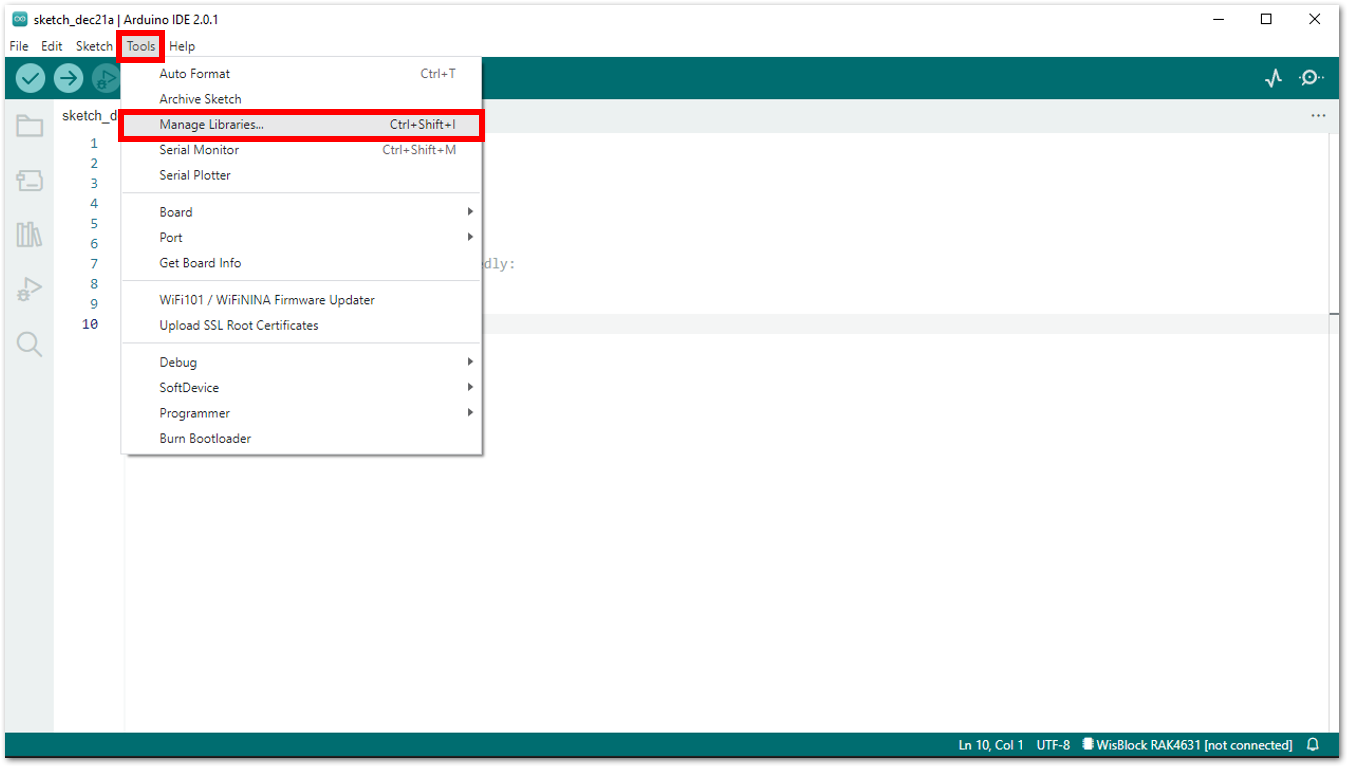 Figure 1: Managing libraries inside the Arduino IDE
Figure 1: Managing libraries inside the Arduino IDE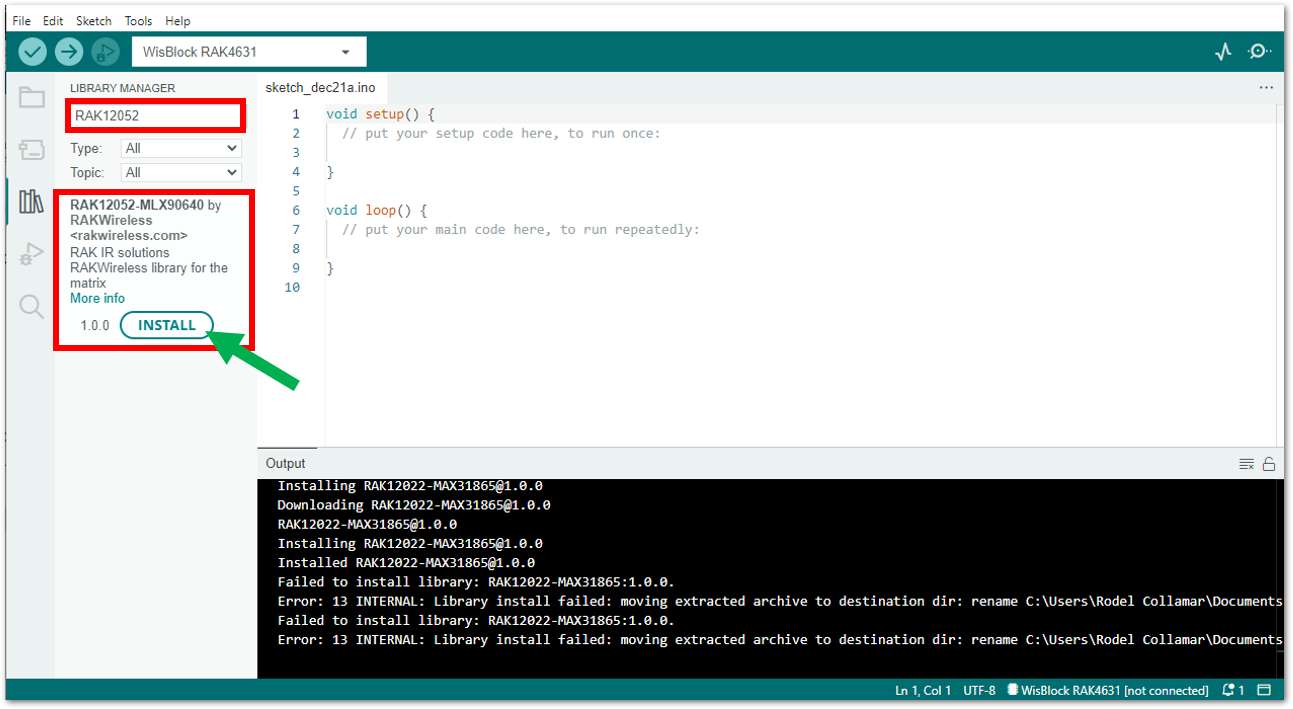 Figure 1: RAK12052 Library
Figure 1: RAK12052 Library- Then open the sample code for RAK12052.
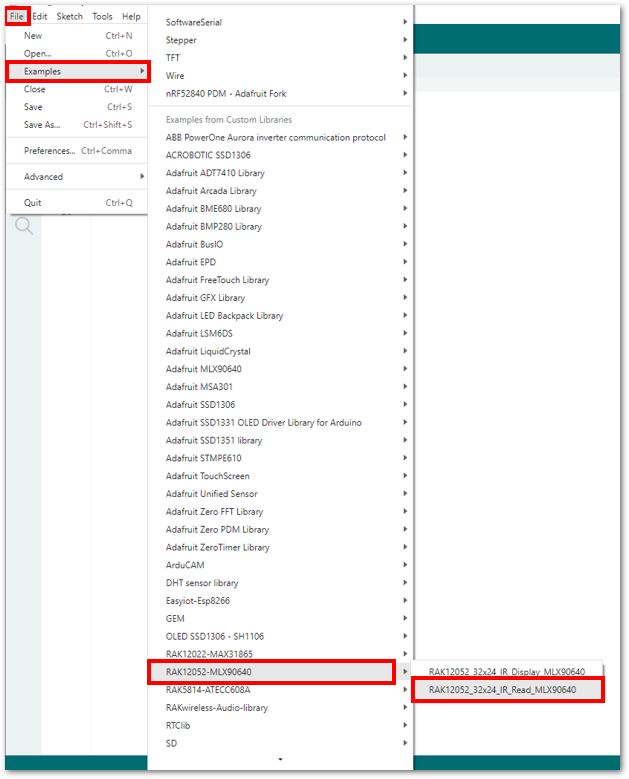 Figure 1: Selecting the sample code for RAK12052
Figure 1: Selecting the sample code for RAK12052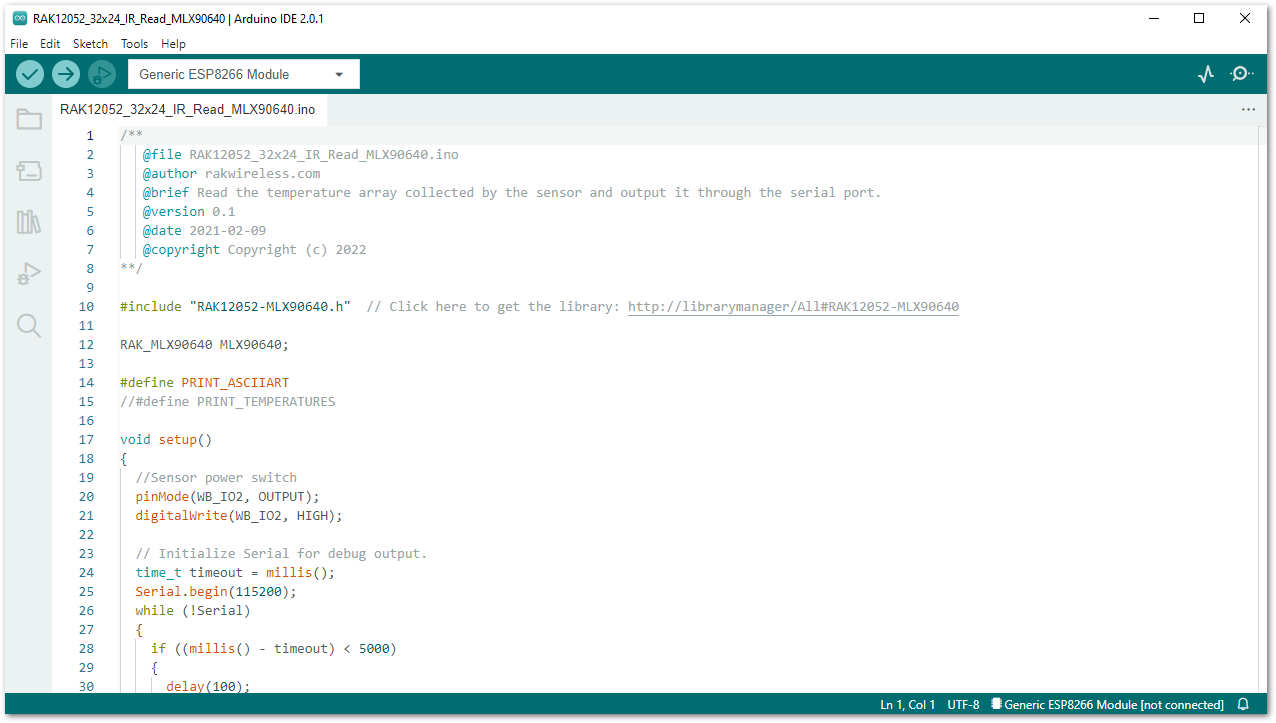 Figure 1: Sample code for RAK12052
Figure 1: Sample code for RAK12052- Then select the RAK4631 board and its serial port, as shown in Figure 13 and Figure 14.
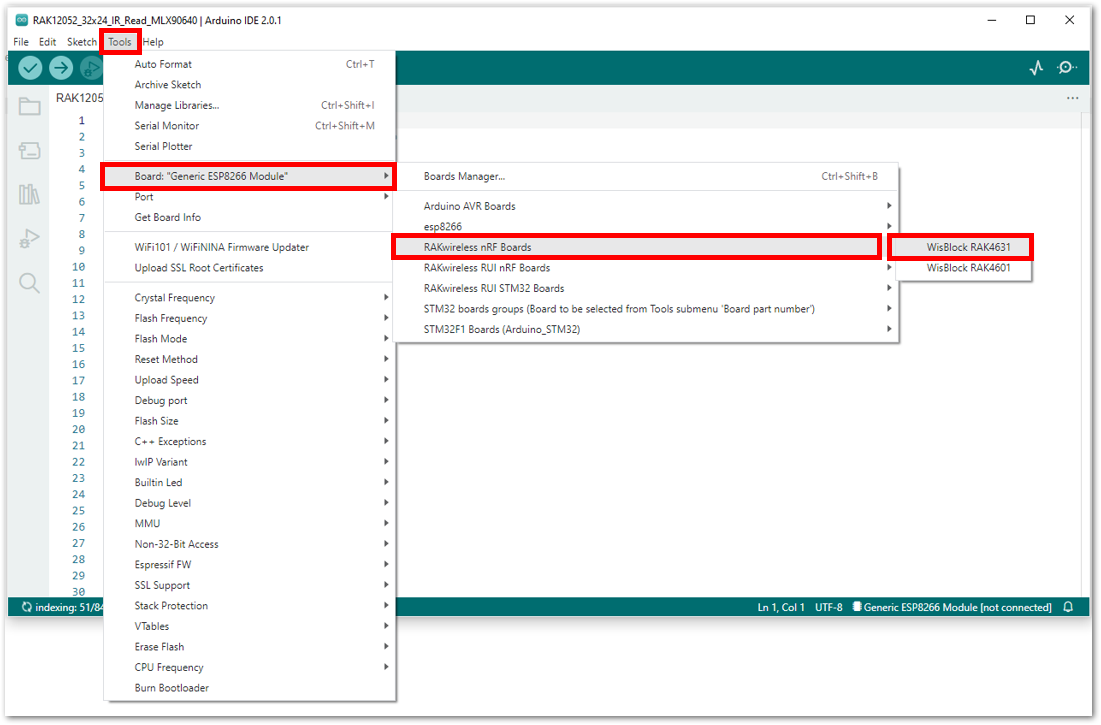 Figure 1: Selecting RAK4631 board as the WisBlock Core
Figure 1: Selecting RAK4631 board as the WisBlock Core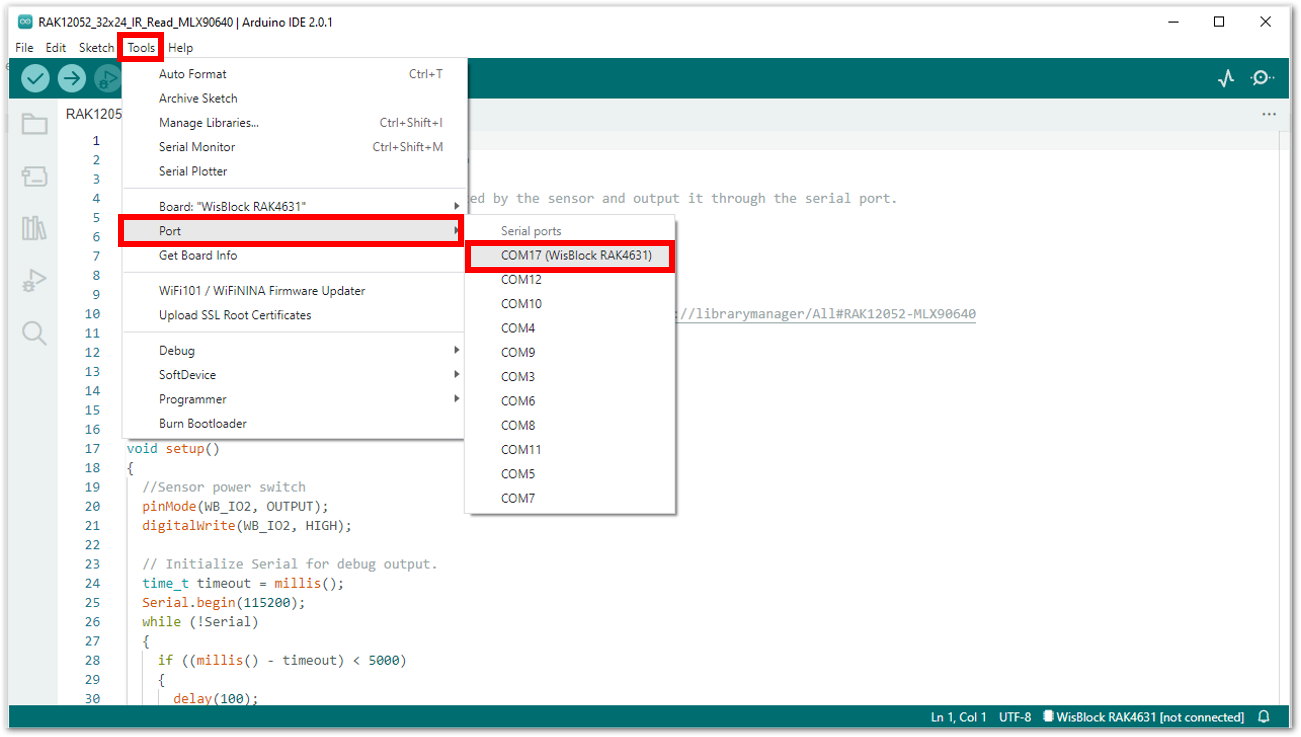 Figure 1: Selecting the serial port of RAK4631 WisBlock Core
Figure 1: Selecting the serial port of RAK4631 WisBlock CoreIf you are using the RAK11200 as your WisBlock Core, the RAK11200 requires the Boot0 pin to be configured properly first before uploading. If not done properly, uploading the source code to RAK11200 will fail. Check the full details on the RAK11200 Quick Start Guide.
- Then upload the code as shown in Figure 15 and Figure 16.
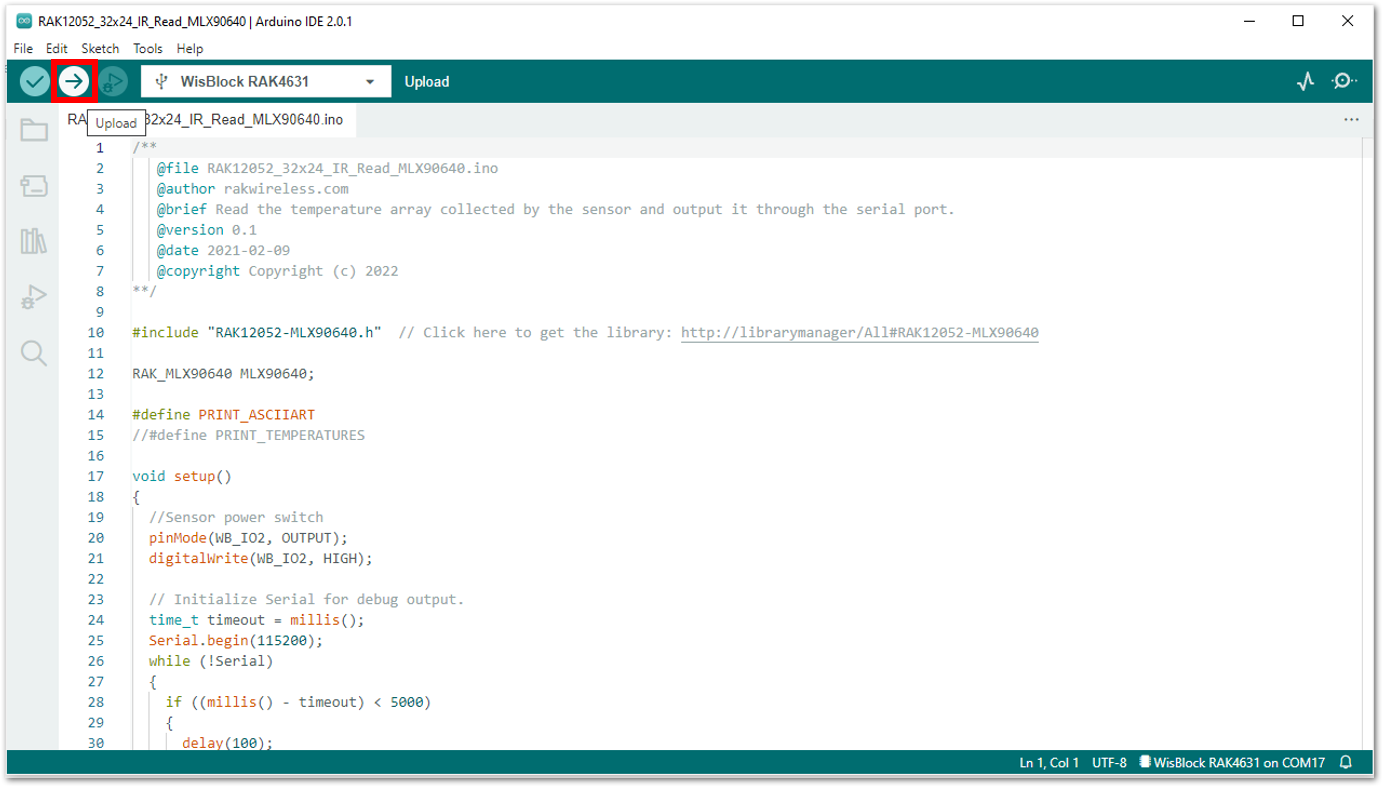 Figure 1: Uploading the RAK12052 sample code
Figure 1: Uploading the RAK12052 sample code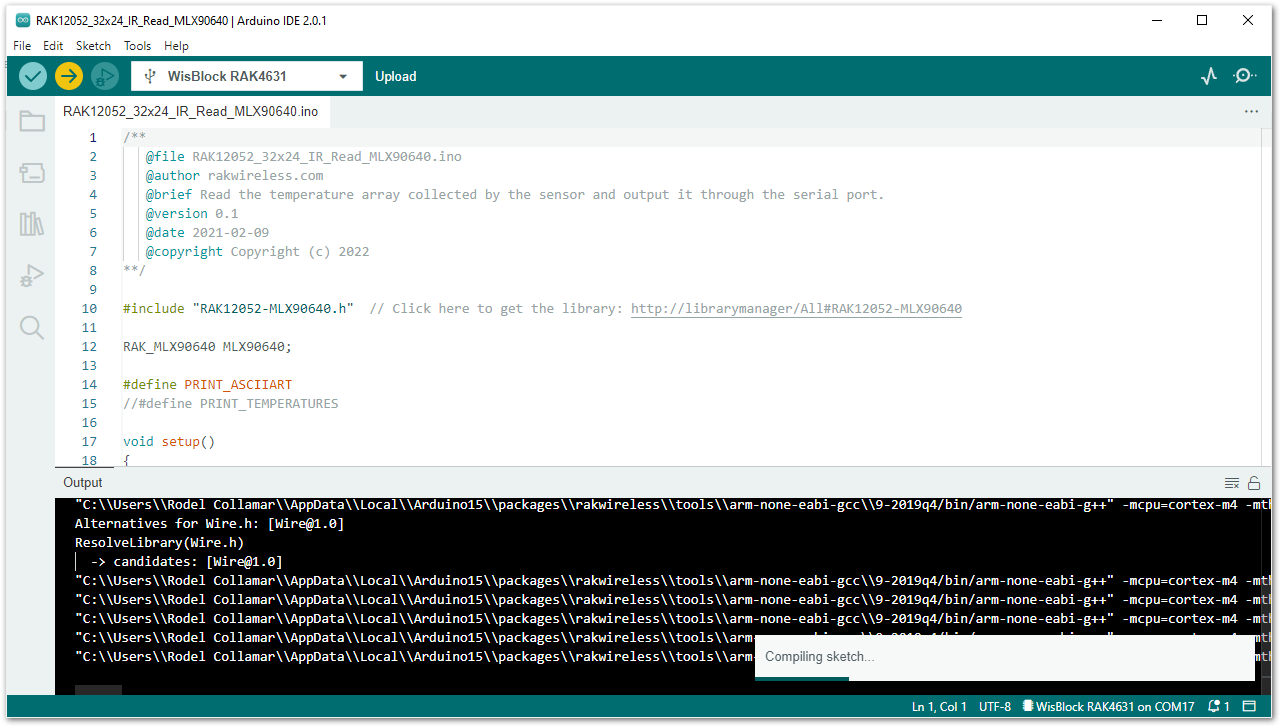 Figure 1: Uploading the RAK12052 sample code
Figure 1: Uploading the RAK12052 sample codeIf you experience any error in compiling the example sketch, check the updated code for the RAK12052 WisBlock Thermal IR Array module that can be found on the RAK12052 WisBlock Example Code Repository.
- When you successfully uploaded the sample code, open the Serial Monitor of the Arduino IDE to monitor the thermal IR array module reading logs.
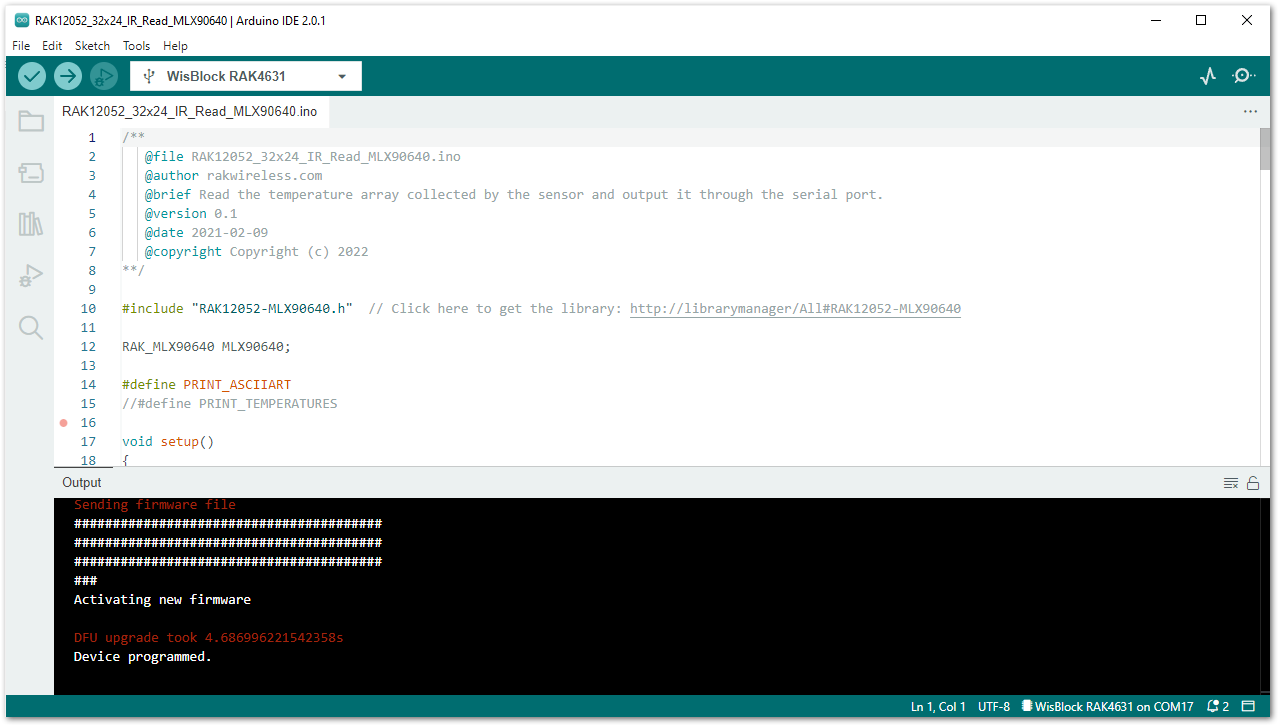 Figure 1: Sample code successfully uploaded to RAK4631
Figure 1: Sample code successfully uploaded to RAK4631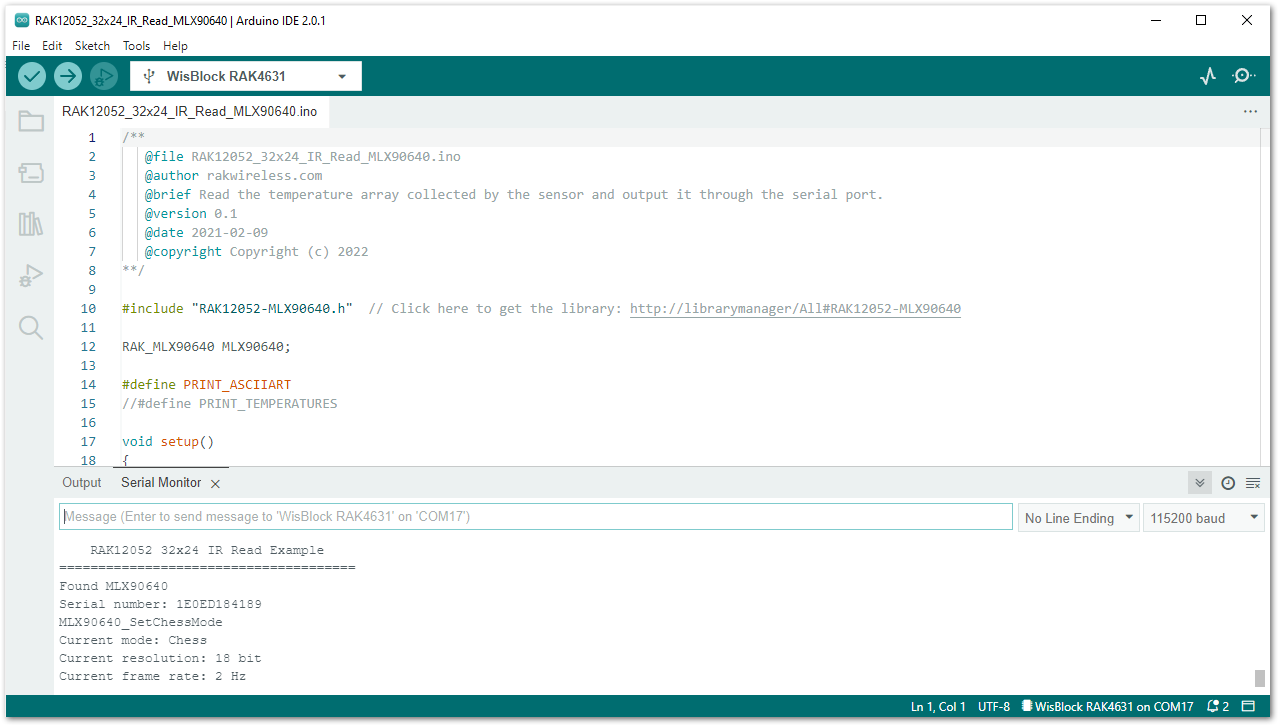 Figure 1: Readings from the Serial Monitor
Figure 1: Readings from the Serial Monitor